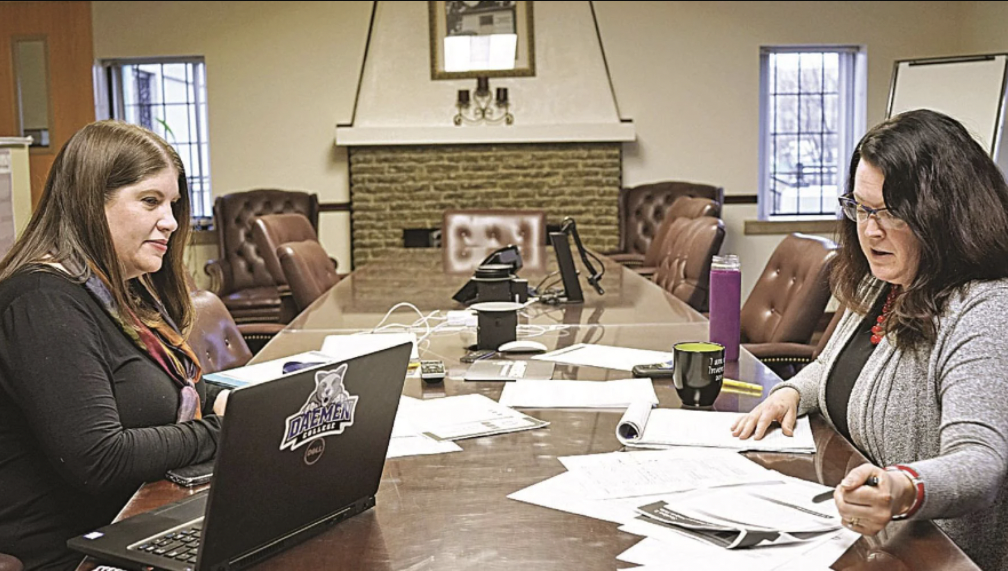The Applied Behavior Analysis (ABA) Department at Daemen has changed its name – now known as the Behavioral Science Department – in order to better reflect its growth in enrollment and degree programs, which are becoming increasingly attractive to out-of-state students.
In the fall 2022 semester, the department will offer its new Behavioral Science and Human Services, M.S. – which was approved by the New York State Education Department in January, 2022 – and will continue to offer its already existing Applied Behavior Analysis M.S., and other related options.
The new degree is likely to act as an additional boon to enrollment by appealing to students outside of New York.
While graduates of the new program will not be eligible for New York State (NYS) licensure in behavior analysis, they will be able to pursue equivalent professional certification in many other U.S. states and Canada. Additionally, with ongoing demand for behavior analysis internationally, this program will prepare students outside of the United States and Canada to potentially provide critical services internationally.
“Many students come to us from outside New York,” said Vicki Madaus Knapp, chair of the Behavioral Science Department and an assistant professor. “The new Behavioral Science and Human Services program is ideal for individuals residing in other states who want to complete their master’s degree in behavioral sciences.”
She added, “Those who are already working in the field can now add a behavioral science background to their existing practice.”
In addition to the new program, the department is now offering an undergraduate service learning course where students participate with the on-campus Young Adult Life Transitions (YALT) program, which is affiliated with People, Incorporated. Also, plans are underway for further expansion including developing additional undergraduate opportunities and offerings – including a PhD program.
Daemen also offers non-matriculated course sequences of up to seven courses. This is designed to be ideal for students who already have their master’s degree and want to take additional courses to work toward board certification in behavior analysis.
Overall, “Graduates of the department can provide unique, effective support for those with autism spectrum disorders, developmental disabilities, behavioral disorders, emotional disturbances and more to achieve goals, learn new skills and improve challenging behavior,” said Knapp.

